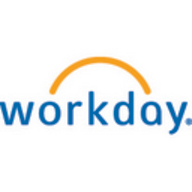

Workday Business Process Framework and Mule ESB are key players in the enterprise technology space. Each has its strengths, with Workday leading in HR and financial management and Mule ESB excelling in system integration.
Features: Workday offers flexible process automation, approval workflows, and audit controls within HR and financial systems. Mule ESB is noted for seamless API integrations, data transformation capabilities, and its ability to connect diverse applications.
Ease of Deployment and Customer Service: Workday's cloud-centric design supports a streamlined deployment experience in HR and financial contexts. Mule ESB's integration-driven focus can result in more complex deployment processes given its connectivity features. Workday provides customer support tailored to business processes, while Mule ESB focuses on supporting integration challenges.
Pricing and ROI: Workday often incurs higher setup costs due to its comprehensive features, leading to significant ROI in HR and financial efficiencies. Mule ESB's competitive cost model benefits businesses seeking flexible integration solutions, with ROI from improved system connectivity. Workday may initially be more costly but offers substantial ROI in its target functions, whereas Mule ESB adds value with its easy integration.
| Product | Market Share (%) |
|---|---|
| Mule ESB | 15.0% |
| Workday Business Process Framework | 2.0% |
| Other | 83.0% |

| Company Size | Count |
|---|---|
| Small Business | 23 |
| Midsize Enterprise | 6 |
| Large Enterprise | 38 |
We monitor all Enterprise Service Bus (ESB) reviews to prevent fraudulent reviews and keep review quality high. We do not post reviews by company employees or direct competitors. We validate each review for authenticity via cross-reference with LinkedIn, and personal follow-up with the reviewer when necessary.